
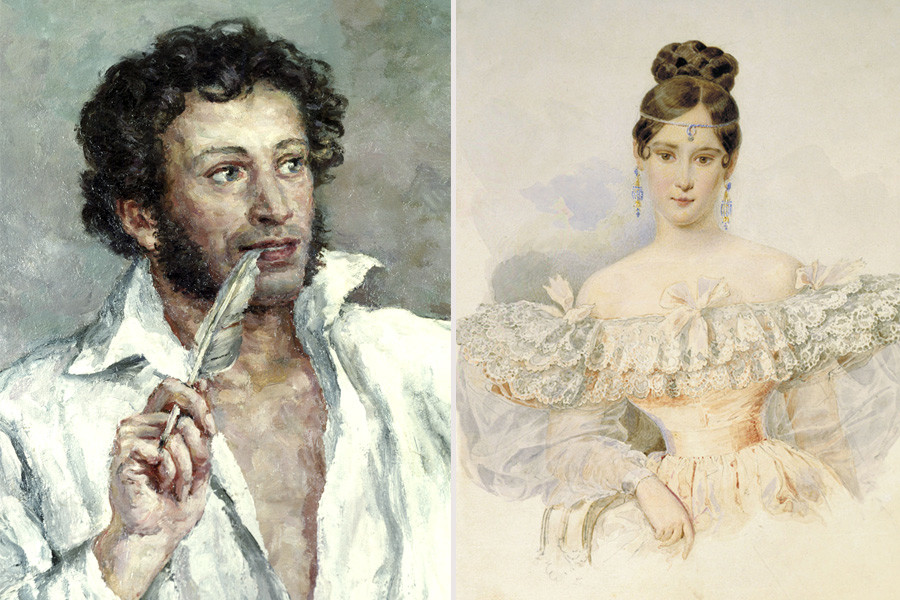
“Today is the anniversary of the day I first set eyes on you; this day... in my life... The more I think, the more convinced I become that my existence cannot be separated from yours: I was created to love you and to follow you; all my other concerns are a complete misconception and insanity.”
Russia's number one poet had many women, constantly fell in
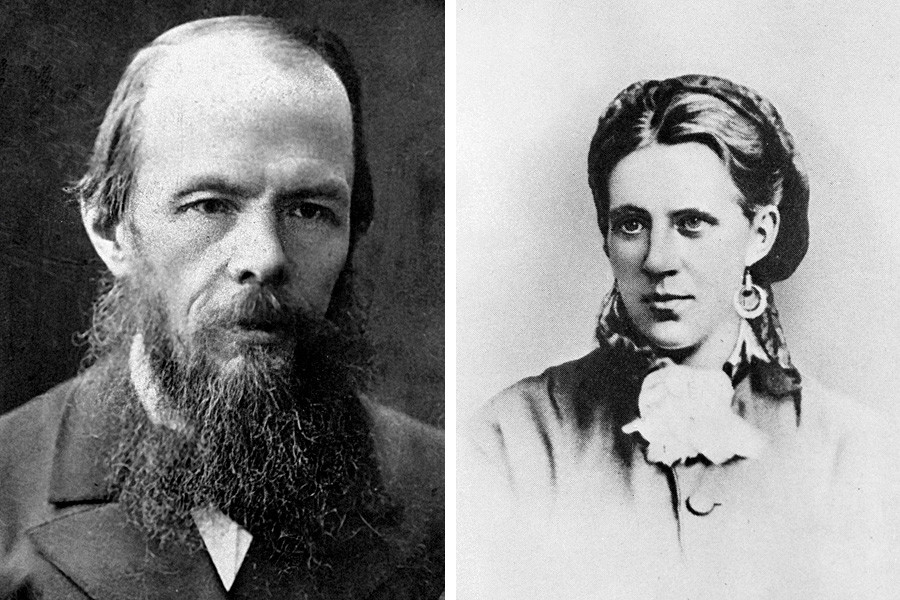
“My angel, I notice that I am becoming more and more attached to you and can no longer endure separation from you. You can turn this fact into your favor and enslave me now even more than before, but know that the more you enslave me, Annie, the happier I will be. Je
After a childless first marriage, Dostoevsky’s second time was to his stenographer, Anna Snitkina, who was 25 years his junior. She helped him meet the impossible deadline for his novella The
Read more: Dostoevsky: Turbulent in love as well as life
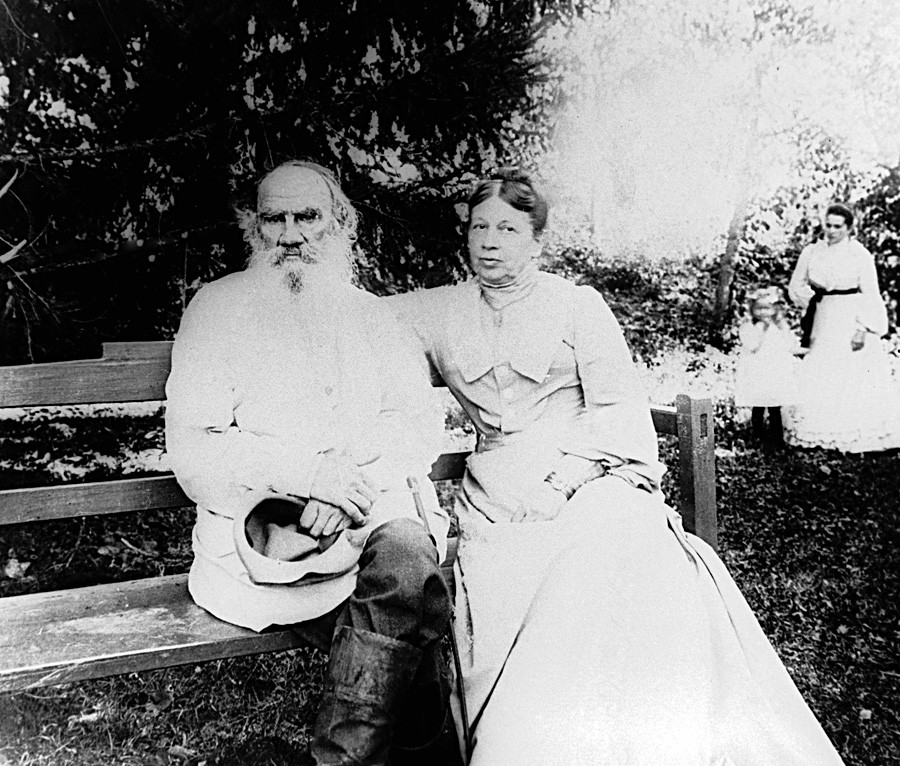
“Tell me, as an honest person, do you want to be my wife? Only if from the bottom of the heart you can bravely say ‘yes.’ Otherwise, if you have any shadow of doubt inside yourself, say instead ‘no.’ For the sake of God, think hard about it. I am afraid to hear ‘no’
Sofia Tolstaya (as she became) is perhaps the most famous wife in literary history and a real heroine, bearing 13 children for her
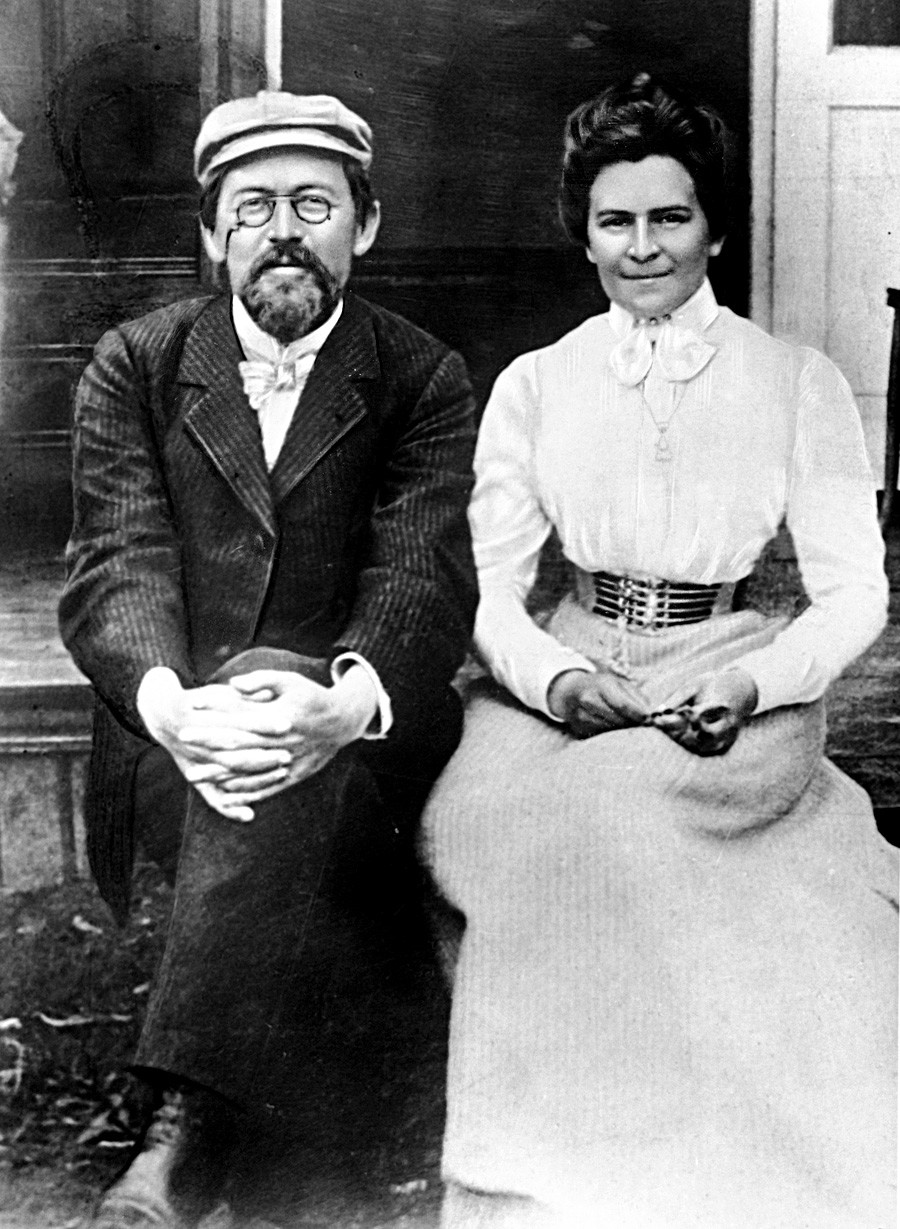
“My darling, my angel, my sugarplum, my dog [that’s right], I implore you to believe that I love you, I love you deeply; don’t ever forget me, write and think about me more often. Whatever happens, even if you were to suddenly turn into an old woman, I would still love you—for your soul, for your temperament [...] I long to kiss and embrace you tightly. And kiss you again. The bed seems lonely to me, as if I’m a stingy bachelor, old and malevolent. Please write!! Your Antoine.”
Chekhov’s letters to his wife are mostly brief (he is credited with the saying, “Brevity is the sister of talent” [although he is rumored to have borrowed it from Shakespeare: “Brevity is the soul of wit”), yet tender and ironic. Chekhov calls his wife a “dog” (some women might have objected), blows verbal kisses and words of love, and threatens jokingly (we hope) that she will “be beaten” if she does not write to him every day. Olga had a reputation as a frivolous person, yet despite (or because of) this, she wrote her own profusive declarations of love to her husband: “Hugs and kisses. I kiss every wrinkle on your face.”
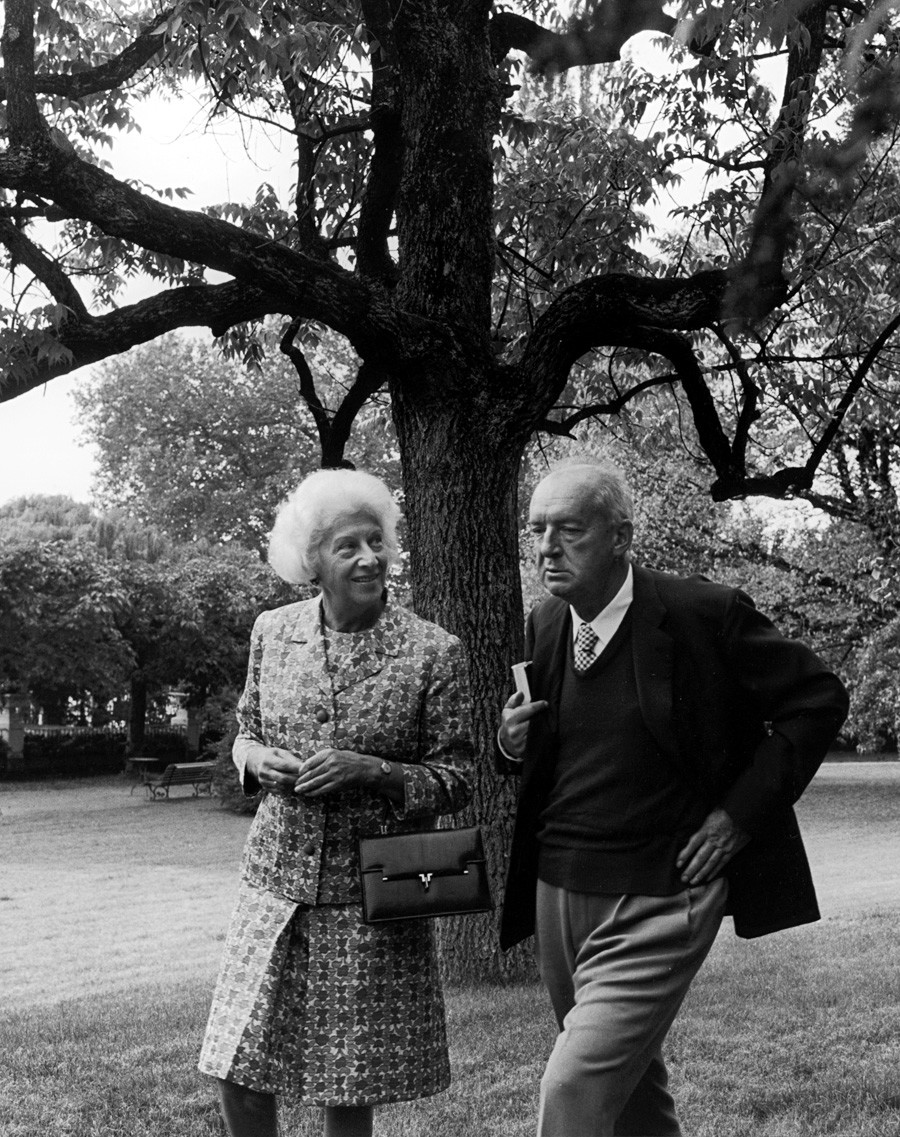
“I swear to everything that is dear to me, to everything that I believe in, that I have never loved as I love you—with such teary-eyed tenderness and such a sense of radiance. [...] Above all else, I want you to be happy, and it seems to me that I could give you this happiness—happiness is sunny, simple, something not quite ordinary.
[...] I love you, I want you, I need you unbearably... Your eyes that shine so astonishingly when you lean back, when you tell a witty anecdote—your eyes, your voice, your lips, your shoulders are so light and sunny...”
The intellectual snob Nabokov was poignantly close to his wife, and when they were apart he described to her all the details of his life in graphic and literal detail, even physiological. Nabokov's letters to his wife were published in a separate book.
Read more: Writers and their wives: Together in love, work and legacy
If using any of Russia Beyond's content, partly or in full, always provide an active hyperlink to the original material.
Subscribe
to our newsletter!
Get the week's best stories straight to your inbox